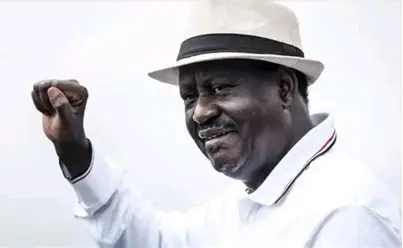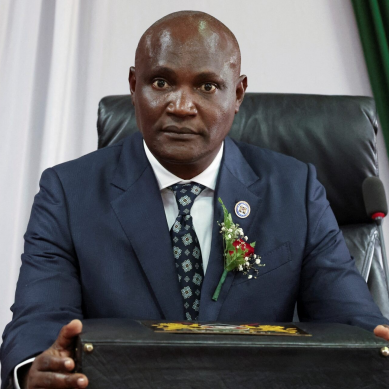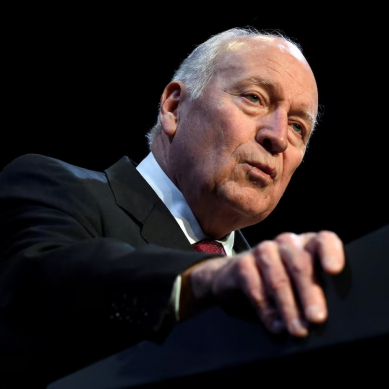
Former Prime Minister of Kenya Raila Odinga died on Wednesday after he suffered a cardiac failure during a morning health walk on the campus of Ayurvedic eye hospital-cum-research centre at Koothattukulam in Ernakulam district of Kerala, India’s mass circulating newspaper, The Hindu, reported two hours after the death.
Raila had been admitted to Ayurvedic Eye Hospital-cum-research centre at Koothattukulam in Ernakulam district of Kerala where he was airlifted from Nairobi, Kenya, nearly two weeks prior after he developed what the family and political allies described as “breathing difficulties.”
Prior to being flown to India, leaders and people close to Raila Odinga had intimated to Tell Media that the grandmaster of Kenyan politics had earlier been admitted to a hospital in Dubai, Qatar, for more than a week.
During his time in Dubai, Raila is said to have held court with President William Ruto and former ruling party Kanu Chair Gideon Moi. The four-hour meeting in Dubai had been organised by Raila Odinga to convince Gideon Moi to join the broad-based government as a minister but the Kanu leader declined the offer that had been reportedly negotiated by Raila.
President Ruto made a stopover in Dubai on his way back home from New York, where had been attending the United Nation General Assembly (UNGA) meeting.
Instructively, Gideon Moi, played a pivotal role in bridging the gulf between former President Uhuru Kenyatta and Raila Odinga following bitterly disputed 2017 presidential election. The dispute was accentuated by the Supreme Court annulment and ordering a run-off.
It is said it is Gideon Moi – at the behest of his father, the late President Daniel arap Moi and Uhuru’s mother Mama Ngina Kenyatta – who was the emissary in behind-the-scenes negotiations that resulted in the earlier broad-based government in March 2018 that is known by its moniker ‘Handshake Government’.
At the Dubai meeting, which may serve as Raila last political engagement, Moi declined Ruto’s offer of a ministerial position – most likely energy – to run for Baring County senatorial seat. Two weeks after the Dai meting – and Raila away in India – Ruto and Moi met at State House, Nairobi, again during which Moi agreed to withdraw from the Baringo senatorial race in favour of a United Democratic Alliance candidate.
Raila Odinga, who has been at the forefront of Kenyan politics for more than five decades and made five unsuccessful runs at the presidency, alleging that he was cheated of victory in every instance.
Odinga passed away in India after suffering a heart attack, the Nairobi-based Star newspaper and other Kenyan media outlets reported.
Odinga, who unsuccessfully ran for Kenya’s presidency in five elections over three decades signed a political pact with President Ruto in March that saw his opposition party co-opted into critical government policymaking and its members appointed to the cabinet.
Odinga was a strong voice for democratic reform, justice and regional diplomacy and recently lost an election to become the African Union chairperson.
The Hindu Times reports that the death occurred around 9 a.m, citing authorities of Sreedhareeyam Ayurvedic Eye Hospital and Research Centre. He had been under treatment at the facility for the last five days. He was accompanied by his daughter and personal doctor, they said.
In recent weeks, there has been speculation about his health, although family members and political allies had dismissed reports suggesting he was critically ill. Politicians and other leaders, including Ethiopian Prime Minister Abiy Ahmed, have been sending their condolences.
A political mobiliser and towering figure in Kenyan politics, Odinga ran unsuccessfully for the presidency five times. He rejected the results on each occasion, often saying that victory had been stolen from him.
He was vindicated by Kenya’s highest court after the 2017 elections, when it annulled Uhuru Kenyatta’s victory and ordered fresh polls. However, he boycotted the rerun, demanding electoral reforms.
The BBC recalls that the disputed election of 2007, in which Odinga claimed he was cheated of victory by Mwai Kibaki, led to the biggest crisis in Kenya’s history. Violence erupted around the country, resulting in 1,200 deaths and about 600,000 people were forced to flee their homes. To resolve the crisis, a power-sharing agreement was brokered by former UN Secretary-General Kofi Annan, leading to the formation of a unity government in which Odinga became prime minister.
He has often reconciled with the incumbent president after contentious elections.
After his most recent defeat in 2022, he later joined President Ruto in a so-called broad-based government, which brought several of his allies into key positions.
He defended the move as necessary for national unity, coming in the aftermath of watershed nationwide protests last year that culminated in the storming of parliament. Dozens of protesters were killed in confrontations with security officers.
The Ruto administration backed Odinga’s bid to become chairperson of the African Union Commission, in elections held earlier this year. Despite strong regional support, he lost to Djibouti’s Mahmoud Ali Youssouf.
According to the BBC profile, Odinga inspired a passionate and loyal following throughout his political career, especially in western Kenya, where he was from. His supporters called him “Baba” (Father), “Agwambo” (Act of God) and “Tinga” (Tractor) – drawn from his party’s symbol during the 1997 elections.
He was widely regarded as a master strategist and mass mobiliser, often drawing huge crowds to his political rallies and he had a deep ability to connect with ordinary people. He will be remembered for his unwavering fight for democratic freedoms and human rights.
He was a former political prisoner and holds the record for being Kenya’s longest-serving detainee. His struggle against one-party dictatorship saw him detained twice (from 1982 to 1988 and 1989 to 1991) during the rule of Daniel arap Moi.
He was initially imprisoned for trying to stage a coup in 1982, which propelled him on to the national stage.
- A Tell Media report







